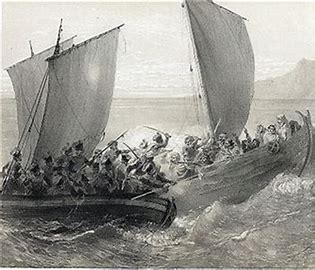- CGS 0093-7310 From Classroom to Career: Academic and Career Exploration 2
-
Instructor: Carol Balk
 Class size: 20 studentsFrequency: Fall / SpringClass Format: Hybrid / Synchronous (monthly meetings)
Class size: 20 studentsFrequency: Fall / SpringClass Format: Hybrid / Synchronous (monthly meetings)As the second course of a two course series on academic and professional development, this course asks students to further examine the ways that their academic plans and career goals align.
Students will identify their current competencies and those they still need to acquire in order to succeed in identified careers. Building on their new understanding of their competencies and interests, students will develop strategies to reach their identified career goals, such as obtaining the internships, informational interviews, and job shadowing experiences necessary to attract prospective career opportunities and build their professional network. Ideal for career launchers and career changers, no prerequisites needed.
What does this course count for in CGS: Career Development (1 credit) - ENGCMP 0200-7510 Seminar in Composition
-
Instructor: Christy Kuehn
 Class size: 19 studentsFrequency: Spring / FallClass Format: Web / Asynchronous (no scheduled meetings)
Class size: 19 studentsFrequency: Spring / FallClass Format: Web / Asynchronous (no scheduled meetings)This introductory course offers students opportunities to improve as writers by developing their understanding of how they and others use writing to interpret and share experience, affect behavior, and position themselves in the world. Specific reading and writing assignments may vary from section to section, but student writing will be the primary focus in all sections. The course is designed to help students become more engaged, imaginative, and disciplined composers.
What does this course count for in CGS: Pre-requisite for many coursesInterested in English Composition? Visit the English Composition Program »
- ENGCMP 0515-7510 Persuasive Writing in Advertising
-
Instructor: Barbara Klein
 Class size: 19 studentsFrequency: Fall / SpringClass Format: Web / Asynchronous (no scheduled meetings)
Class size: 19 studentsFrequency: Fall / SpringClass Format: Web / Asynchronous (no scheduled meetings)In this course, students will analyze and create the kinds of persuasive writing used in the fields of fundraising and advertising. Both types of writing attempt to influence the decisions people make about the money they spend, the attitudes they have, and the issues that shape our society.
What does this course count for in CGS: Majors - Liberal Studies BA (self design); MPCOMM BA Corporate & Community Relations Track and Certificate, and Writing for the Professions Track and CertificateInterested in English Composition? Visit the English Composition Program »
- GER 0101-7110 Beginning German 1
-
Instructor: Dieter Waeltermann
 Class size: 20 studentsFrequency: Spring (Online)Class Format: Online Synchronous (weekly meetings, M & TH 6:00-7:15pm)
Class size: 20 studentsFrequency: Spring (Online)Class Format: Online Synchronous (weekly meetings, M & TH 6:00-7:15pm)This is the first part of our elementary language course sequence. In these proficiency-oriented courses students begin to learn how to communicate in German.
The course emphasizes all four skills - speaking, listening, reading, and writing - and introduces students to the culture of the German-speaking countries. Students will be working towards the A1-level of the Common European Framework of Reference. Students should plan to take German 0102 during the following semester.
What does this course count for in CGS: Major - Liberal Studies BA (self design); General Education Second Language RequirementInterested in German? Visit the Department of German »
- GSWS 0100-7710/7720 (two sections) Intro to Gender, Sexuality, and Women Studies
-
Instructor: Courtney Colligan & Alonna Carter
 Class size: 19 studentsFrequency: Spring / FallClass Format: Hybrid (asynchronous & on campus monthly meetings)
Class size: 19 studentsFrequency: Spring / FallClass Format: Hybrid (asynchronous & on campus monthly meetings)What is sex? What is gender? What is sexuality? How are these concepts related to culture? To nature? To help you answer these important questions, this course will introduce you to the exciting field of gender and sexuality studies. We will use a range of interdisciplinary concepts, tools, and methods to understand and analyze sex, gender, femininity, masculinity, and sexuality.
In addition, we will consider how gender intersects with other identity categories such as race, class, ethnicity, nation, age, ability, and sexuality. Because we all have a gender and a sexuality, this course is crucial for any profession and for understanding the world around us.
What does this course count for in CGS: Major - Liberal Studies BA (self design)Interested in Gender, Sexuality & Women Studies? Visit the GSWS Program »
- GSWS 0150-7510 Gender in the Professions
-
Instructor: Alonna Carter
 Class size: 25 studentsFrequency: Spring / FallClass Format: Web / Asynchronous (no scheduled meetings)
Class size: 25 studentsFrequency: Spring / FallClass Format: Web / Asynchronous (no scheduled meetings)How are the goals and concerns of feminism relevant in a variety of workplaces? Why haven't women achieved equal pay for equal work, compared to men? What is unpaid labor, and why does it matter? Why should my organization create policies that support individuals regardless of gender identity, gender expression, and sexuality (and what do those terms mean, anyway?)?
To help you answer these important questions, this course will take an introductory, intersectional approach to gender in the professions. We will use a range of interdisciplinary concepts, tools, and methods to understand and analyze sex, gender, and sexuality as they relate to the world of work.
In addition, we will consider how gender and sexuality intersect with other identity categories such as race, class, ethnicity, nationality, age, and ability. Because we all have a gender and a sexuality, this course is crucial for any profession and for understanding the world around us.
What does this course count for in CGS: Major - Liberal Studies BA (self design)Interested in Gender, Sexuality & Women Studies? Visit the GSWS Program »
- GSWS 1130-7510 Gendered Bodies
-
Instructor: Heather Reel
 Class size: 19 studentsFrequency: SpringClass Format: Web / Asynchronous (no scheduled meetings)
Class size: 19 studentsFrequency: SpringClass Format: Web / Asynchronous (no scheduled meetings)For centuries, the biological sciences have embraced the human body as a product of nature in need of study, measurement, and treatment. Much of this knowledge has contributed to discourses of "normal" and "healthy" bodies. However, contemporary social science and feminist perspectives offer alternative readings of the human body as a social construction based upon cultural conventions and perceptions of gender, race, class, and sexuality.
As Lorber and others have argued, "the result is a gendered body, produced for a gendered social world." This class will examine a wide variety of gendered social constructions of the human body at work, in sports, and in media images that reflect standards and ideals of "beauty," "health" and "deviance." We will also consider the meaning of gendered bodies in light of contemporary technologies - such as plastic surgery, steroids, infertility treatments - that help to reveal the ways in which males, females, and "others" become "men" and "women."
What does this course count for in CGS: Major - Liberal Studies BA (self design); Disability Studies CertificateInterested in Gender, Sexuality & Women Studies? Visit the GSWS Program »
- GSWS 1210-7510 Gender and the Digital
-
Instructor: Courtney Colligan
 Class size: 20 studentsFrequency: SpringClass Format: Web / Asynchronous (no scheduled meetings)
Class size: 20 studentsFrequency: SpringClass Format: Web / Asynchronous (no scheduled meetings)This course will explore the relationship between identity, media, and digital culture, specifically how gender is constructed and contested through forms of media.
Students will consider how media also informs notions of race, class, sexuality, religion, and ethnicity, among other identity markers. This course will rely on thoughtful and academically stimulating analyses of media, such as television, film, music, advertising, online spaces, video games, among others, and in various combinations.
What does this course count for in CGS: Major - Liberal Studies BA (self design); MPCOMM Digital Media Track; Digital Media CertificateInterested in Gender, Sexuality & Women Studies? Visit the GSWS Program »
- HIST 1060-7510 A Global History of Piracy
-
Instructor: John BoonstraClass size: 20 studentsFrequency: Spring / SummerClass Format: Web / Asynchronous (no scheduled meetings)
This is an exploration of the ancient and global history of piracy.
Using primary historical documents (written by and about pirates) as well as the accounts of modern historians, we will discuss a range of topics such as the role of piracy in the building of empires, the later struggle of merchants and their allies to eradicate piracy through bloody campaigns of capital punishment, and the meanings of the pirate as represented in popular culture through the ages.
What does this course count for in CGS: Major - Liberal Studies BA (self design); General Education Global Issues and Cross-Cultural Awareness RequirementInterested in History? Visit the Department of History »
- HIST 1175-7510 Xenophobia of Modern Europe
-
Instructor: John Boonstra
 Class size: 20 studentsFrequency: SpringClass Format: Web / Asynchronous (no scheduled meetings)
Class size: 20 studentsFrequency: SpringClass Format: Web / Asynchronous (no scheduled meetings)This course will examine Europe's post-war xenophobic, racist and exclusionary policies.
We will use memoirs, photo-journalism, film and interviews to understand recent discrimination against refugees, guest workers, Jews, linguistic and religious minorities. We will also put the question into scholarly context, as we examine how historians, sociologists, psychologists and anthropologists try to understand the way in which Europeans construct the categories of "us" and the "others".
What does this course count for in CGS: Major - Liberal Studies BA (self design); General Education Historical Analysis and Specific Geographic Region RequirementInterested in History? Visit the Department of History »
- MATH 0031-7510 Algebra
-
Instructor: Bob O'Mara
 Class size: 20 studentsFrequency: Fall / Spring / SummerClass Format: Web / Asynchronous (no scheduled meetings)
Class size: 20 studentsFrequency: Fall / Spring / SummerClass Format: Web / Asynchronous (no scheduled meetings)The course covers basic algebra skills. Linear, polynomial, rational, exponential, and logarithmic functions are included. Systems of linear equations are also covered.
What does this course count for in CGS: Major - Liberal Studies BA (self design); Natural Sciences BS Standard Track; General Education Algebra RequirementInterested in Mathematics? Visit the Department of Mathematics »
- MATH 0200-7510 Prep for Scientific Calculus
-
Instructor: Anthony Sorrentino III
 Class size: 25 studentsFrequency: SpringClass Format: Web / Asynchronous (no scheduled meetings)
Class size: 25 studentsFrequency: SpringClass Format: Web / Asynchronous (no scheduled meetings)A variety of topics are studied: functions, rational functions, logarithmic and exponential functions, graphs, asymptotes, inverse, conic sections, translation and rotation of axes, trigonometric identities and equations, and possibly vectors.
What does this course count for in CGS: Major - Liberal Studies BA (self design); Natural Sciences BS Standard Track; General Education Algebra RequirementInterested in Mathematics? Visit the Department of Mathematics »
- PSY 0422-7510 Cognitive Psychology
-
Instructor: Liz Richey
 Class size: 20 studentsFrequency: SpringClass Format: Web / Asynchronous (no scheduled meetings)
Class size: 20 studentsFrequency: SpringClass Format: Web / Asynchronous (no scheduled meetings)This course introduces students to core issues, theories, and experimental finding in cognitive psychology.
Topics to be covered include sensory perception, attention, memory, imagery, language, reasoning, problem solving and decision making.
What does this course count for in CGS: Liberal Studies BA (self design); Natural Sciences BS Standard Track; General Education Natural Sciences RequirementInterested in psychology? Visit the Department of Psychology »
- PSY 1050-7510 Topics in Psychology: Positive Psychology
-
Instructor: Ahmed Ghuman
 Class size: 20 studentsFrequency: SpringClass Format: Web / Asynchronous (no scheduled meetings)
Class size: 20 studentsFrequency: SpringClass Format: Web / Asynchronous (no scheduled meetings)Positive psychology encompasses the study of positive experiences, positive character strengths, positive relationships, and the institutions and practices that facilitate their development. Positive experiences include the mental states of flow and mindfulness and emotions about the present (pleasure, contentment, laughter), past (e.g., nostalgia, satisfaction, pride), and future (e.g., hope, optimism). The distinction among the pleasant life, the good life, and the meaningful life will be drawn. The positive character traits include wisdom, courage, compassion, love, humanity, justice, temperance, self-efficacy, resilience, grit, imagination, creativity, and spirituality/transcendence.
This course also reviews the history of positive psychology and the contributions this new field has made to several traditional research areas in psychology. We will also engage in experiential learning and practical exercises to increase wellbeing, which will inform our theoretical and empirical understanding of important questions in positive psychology.
What does this course count for in CGS: Liberal Studies BA (self design); Natural Sciences BS Standard TrackInterested in psychology? Visit the Department of Psychology »
- PUBHLT 0330-7510 Intro to Epidemiology
-
Instructor: Sharon Welburn
 Class size: 20 studentsFrequency: SpringClass Format: Web / Asynchronous (no scheduled meetings)
Class size: 20 studentsFrequency: SpringClass Format: Web / Asynchronous (no scheduled meetings)This course introduces students to the public health discipline of epidemiology, the data-driven science of health measures and determinants.
Instruction focuses upon an overview of the key principles and practices of epidemiology as they relate to understanding the health of the population and the prevention and control of disease and other health problems.
Lectures will introduce approaches to measure the frequency and burden of health problems in the community, measures to characterize factors that may increase the risk for health problems, approaches to study causes of common health problems, and measures and practices used to reduce health problems in the community.
What does this course count for in CGS: Major - Liberal Studies BA (self design); Health Services BA; Community Health Assessment Certificate; Managing Health Services Programs & Projects CertificateInterested in Public Health? Visit the School of Public Health »
- URBNST 0506-7510 Planning Process
-
Instructor: Chihuangji (Herbert) Wang
 Class Size: 25 studentsFrequency: Fall / SpringClass Format: Web / Asynchronous (no scheduled meetings)
Class Size: 25 studentsFrequency: Fall / SpringClass Format: Web / Asynchronous (no scheduled meetings)This course introduces the practice of urban planning, focusing on the opportunities and challenges of professional planning in Pittsburgh's metropolitan region. The course focuses on how planning processes and methods can address different urban needs.
Students will engage with guest speakers and plans that illustrate approaches to land use, zoning, transportation planning, placemaking, public health, and sustainability.
On completion, students will concisely and effectively communicate findings and recommendations and develop practical solutions to their professional, urban plans.
What does this course count for in CGS: Majors - Health Services BA and Liberal Studies BA (self design); Certificates - Community Health Assessment and Leadership
Interested in Urban Studies? Visit the Urban Studies Program »
- URBNST 0518-7510 Smart Cities: Frontiers in Urban Analytics & Big Data
-
Instructor: Chihuangji (Herbert) Wang
 Class Size: 20 studentsFrequency: Spring / SummerClass Format: Web / Asynchronous (no scheduled meetings)
Class Size: 20 studentsFrequency: Spring / SummerClass Format: Web / Asynchronous (no scheduled meetings)The growing importance of big data and urban analytics are contributing to cities becoming 'smarter'. Smart city planning requires creating data structures and methods of framework to gather, store, and analyze information that can inform planning practices and policymaking.
This course will outline the frontiers in urban data science, including the ethical and analytical considerations that underpin the smart city paradigm. Students will gain practical experience with analyzing, modelling, and interpreting quantitative and qualitative data using R and RStudio.
The course is designed to accommodate students with diverse backgrounds, and while no prerequisites are required some familiarity with statistical methods and coding is beneficial. The course emphasizes a geographical perspective in addressing urban topics (including infrastructure, transportation, and sustainability), empowering students to contribute to future urban planning practices and policymaking.
What does this course count for in CGS: Major - Liberal Studies BA (self design); National Preparedness Homeland Security Certificate
Interested in Urban Studies? Visit the Urban Studies Program »
- Why CGS?
- Academics
- Majors
- Certificates
- Accounting
- Communication
- Community Health Assessment
- Corporate/ Community Relations
- Digital Media
- Disability Studies
- Gender, Sexuality, and Women’s Studies
- Information System Design
- Leadership
- Managing Health Services Programs and Projects
- National Preparedness and Homeland Security
- Nonprofit Management
- Writing
- Writing for the Professions
- Minors
- General Education Requirements
- Flexible Courses
- Program Checklists
- Internships
- Global Experiences
- Early Admission to Graduate Study
- Admissions and Aid
- Advising
- Overview
- CGS New Student Orientation
- Meeting with Your Advisor
- Current Students
- Selecting Your Degree
- Building Your Schedule
- Registering for Courses
- Withdrawing from Courses
- Understanding Your Academic Record
- Graduating with a CGS Degree/Certificate
- Academic Standards, Policies, and Integrity
- CGS Forms
- People
- Apply Now

